第56章 The Open Door (2)
The United States did not arrive in this energetic company as an entire stranger.With both China and Japan her relations had long been intimate and friendly.American merchants had traded ginseng and furs for China silks and teas ever since the United States had been a nation.In 1786 the Government had appointed a commercial agent at Canton and in 1844 had made one of the first commercial treaties with China.In 1854 the United States had been the point of the foreign wedge that opened Japan to western civilization and inaugurated that amazing period of national reorganization and assimilation which has given the Japanese Empire her place in they world today.American missionaries had labored long and disinterestedly for the moral regeneration of both China and Japan with results which are now universally recognized as beneficial, though in 1900 there was still among the Chinese much of that friction which is the inevitable reaction from an attempt to change the fundamentals of an ancient faith and long-standing habits.American merchants, it is true, had been of all classes, but at any rate there had always been a sufficient leaven of those of the highest type to insure a reasonable reputation.
The conduct of the American Government in the Far East had been most honorable and friendly.The treaty with Japan in 1858contained the clause: "The President of the United States, at the request of the Japanese Government, will act as a friendly mediator in such matters of difference as may arise between the Government of Japan and any European power." Under Seward the United States did, indeed, work in concert with European powers to force the opening of the Shimonoseki Straits in 1864, and a revision of the tariff in 1866.Subsequently, however, the United States cooperated with Japan in her effort to free herself from certain disadvantageous features of early treaties.In 1883 the United States returned the indemnity received at the time of the Shimonoseki affair--an example of international equity almost unique at the time but subsequently paralleled in American relations with China.The one serious difficulty existing in the relationships of the United States with both China and Japan resulted from an unwillingness to receive their natives as immigrants when people of nearly every other country were admitted.The American attitude had already been expressed in the Chinese Exclusion Act.As yet the chief difficulty was with that nation, but it was inevitable that such distinctions would prove particularly galling to the rising spirit of the Japanese.
John Hay was keenly aware of the possibilities involved in these Far Eastern events.Of profound moment under any circumstances, they were doubly so now that the United States was territorially involved.To take a slice of this Eastern area was a course quite open to the United States and one which some of the powers at least would have welcomed.Hay, however, wrote to Paul Dana on March 16, 1899, as follows: "We are, of course, opposed to the dismemberment of that empire [China], and we do not think that t2he public opinion of the United States would justify this Government in taking part in the great game of spoliation now going on." He felt also that the United States should not tie its hands by "formal alliances with other Powers interested," nor was he prepared "to assure China that we would join her in repelling that demand by armed force."It remained, then, for the Secretary of State to find a lever for peaceful interference on the part of his country and a plan for future operations.The first he found in the commercial interest of the United States.Since the Government refrained from pressing for special favors in any single part of the Chinese Empire, it could demand that American interests be not infringed anywhere.The Secretary of State realized that in a democracy statesmen cannot overlook the necessity of condensing their policies into popular catchwords or slogans.Today such phrases represent in large measure the power referred to in the old saying: "Let me make the songs of a nation, and I care not who makes its laws." The single phrase, "scrap of paper," probably cost Germany more than any one of her atrocious deeds in the Great War.Hay's policy with regard to China had the advantage of two such phrases.The "golden rule," however, proved less lasting than the "open door," which was coined apparently in the instructions to the Paris Peace Commission.This phrase expressed just what the United States meant.The precise plan of the American Government was outlined and its execution undertaken in a circular note of September 6, 1899, which the Secretary of State addressed to London, Berlin, and St.Petersburg.In this he asked the powers to agree to respect all existing open ports and established interests within their respective spheres, to enforce the Chinese tariff and no other, and to refrain from all discrimination in port and railroad charges.To make such a proposal to the European powers required courage.In its essential elements the situation in the Far East was not unlike the internal economic condition prevailing at the same time in the United States.In this country great transportation monopolies had been built up, having an enormous capitalization, and many of them were dependent for their profits on the advantage of price fixing that monopoly may be expected to bring.
Then state and nation stepped in and asserted their right to fix prices in the interest of the consumer.The consequent political struggles illustrate the difficulties besetting the Secretary of State in his somewhat similar attempt to take the chief fruits from the powers which had just acquired Chinese territory--an undertaking in which he had none of the support of legal powers effective in the United States.